6 Beneficial Seeds You Shouldn't Miss in Your Diet
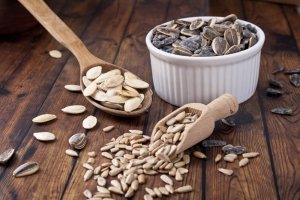

Written and verified by the pedagogue in physical education and nutritionist Elisa Morales Lupayante
There is a variety of beneficial seeds that have surprising benefits for the health of your body and mind. They’re edible and really should be included in your diet.
Seeds are also considered “super foods” due to the quantity of antioxidants, nutrients, and amazing benefits that they give your body.
Each one has its unique characteristics and can be added to different everyday foods. The majority of them have a delicious flavor and texture.
In this article, we’ll take a look at some of the healthiest ones!
Seeds You Should Include in Your Diet
1. Chia Seeds
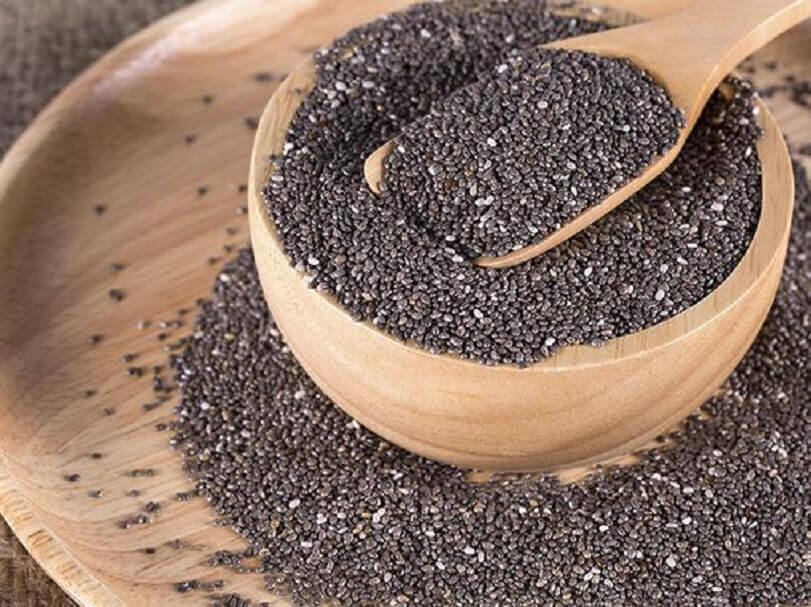
Chia seeds are packed with vitamins and minerals. They contain ten times more fiber than rice, eight times more omega-3 than salmon, six times more calcium than milk and three times more iron than spinach.
They also provide you with iron and potassium, and can be incorporated into your diet in different forms: cooked, in smoothes, in salads, in bread, and in cookies.
Among the benefits in these seeds, they help to:
- Precent cardiovascular disease, thanks to its richness in omega-3, which protects your heart.
- Improve circulation.
- Lower blood pressure.
- Reduce cholesterol levels.
- Maintain triglyceride levels in the blood.
- Control blood sugar levels.
We recommend you read: 8 Surprising Benefits of Chia Seeds
2. Sesame Seeds
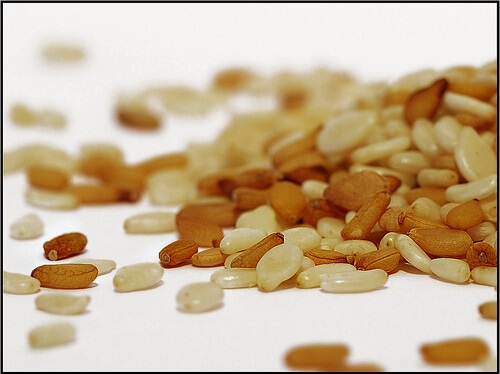
Sesame seeds have a high concentration of calcium and protein and are very popular in baked goods.
They also have a high antioxidant capacity thanks to their phenolic compounds that help reduce cholesterol, which is why they’re very helpful for your cardiovascular health.
You can use them on top of breads and cookies, in yogurts and in cheeses.
Among their nutrients are:
- Minerals (magnesium, iron, potassium, calcium, zinc, manganese)
- Vitamin B
- Fiber
3. Flax Seeds
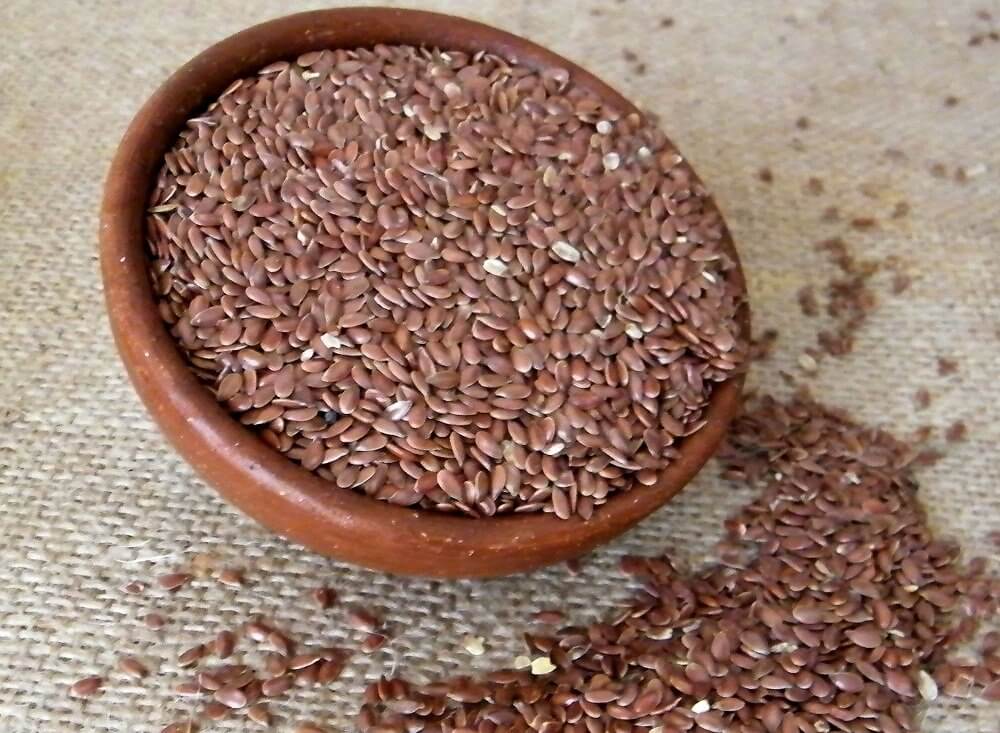
Flax seeds have been consumed for many years because of how much they benefit health. They’re an excellent source of:
- Fiber
- Polyphenols
- Linoleic acid
They are compounds that have many benefits for the human body. You can’t forget that fiber is necessary for all of your digestive processes.
Sesame seeds help regulate hormone production in your body, making them very important for women during their menstrual cycle or menopause.
They’re also ideal for weight loss, reducing cholesterol, and benefiting your digestive system.
You can incorporate them in different foods, such as yogurts and smoothies, salads, rice and pasta, or you can use it in tea.
4. Sunflower Seeds
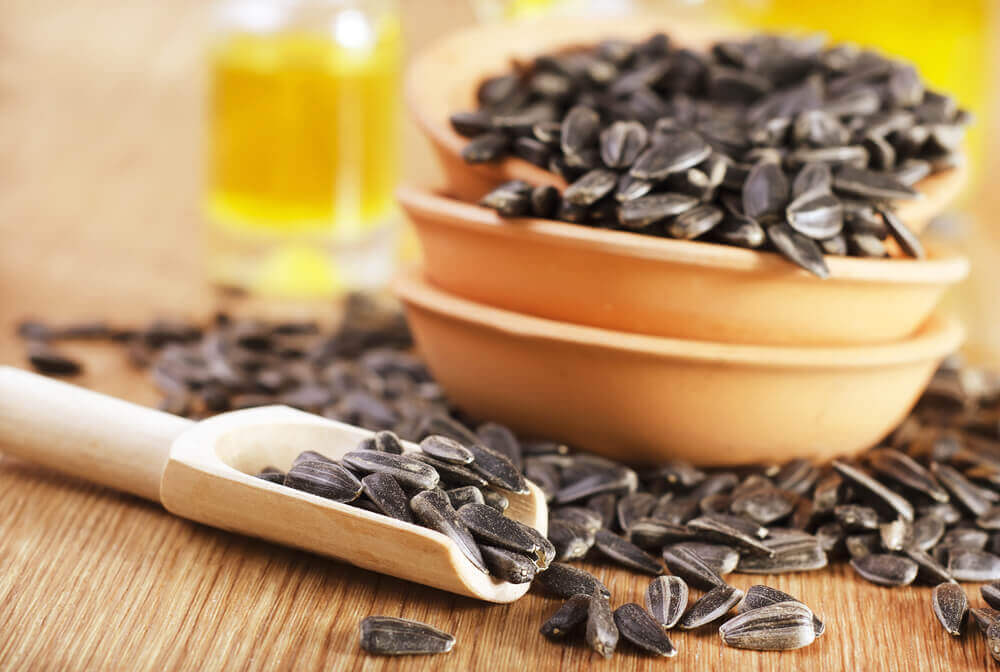
Sunflower seeds are delicious and are very beneficial for your health. They have a lot of antioxidant power that keep off and fight free radicals. Sesame seeds also have a high vitamin E concentration, which is very good to nourish and rejuvenate your skin.
They are ideas for people that play a lot of sports because they give you lots of minerals and all B complex vitamins.
In them, you’ll find large amounts of:
- Vitamins B and E (which help maintain good cardiovascular health)
- Phytosterols
- Minerals (magnesium, potassium, selenium, phosphorus)
Additionally, they are very recommended for vegan diets because they are a great source of vegetable protein.
You can eat them naturally, whether they’re soaked, ground, or in a puree. Avoid salted, sugared, or toasted seeds.
Also read: Get More Calcium Healthily with these Seeds
5. Pumpkin Seeds
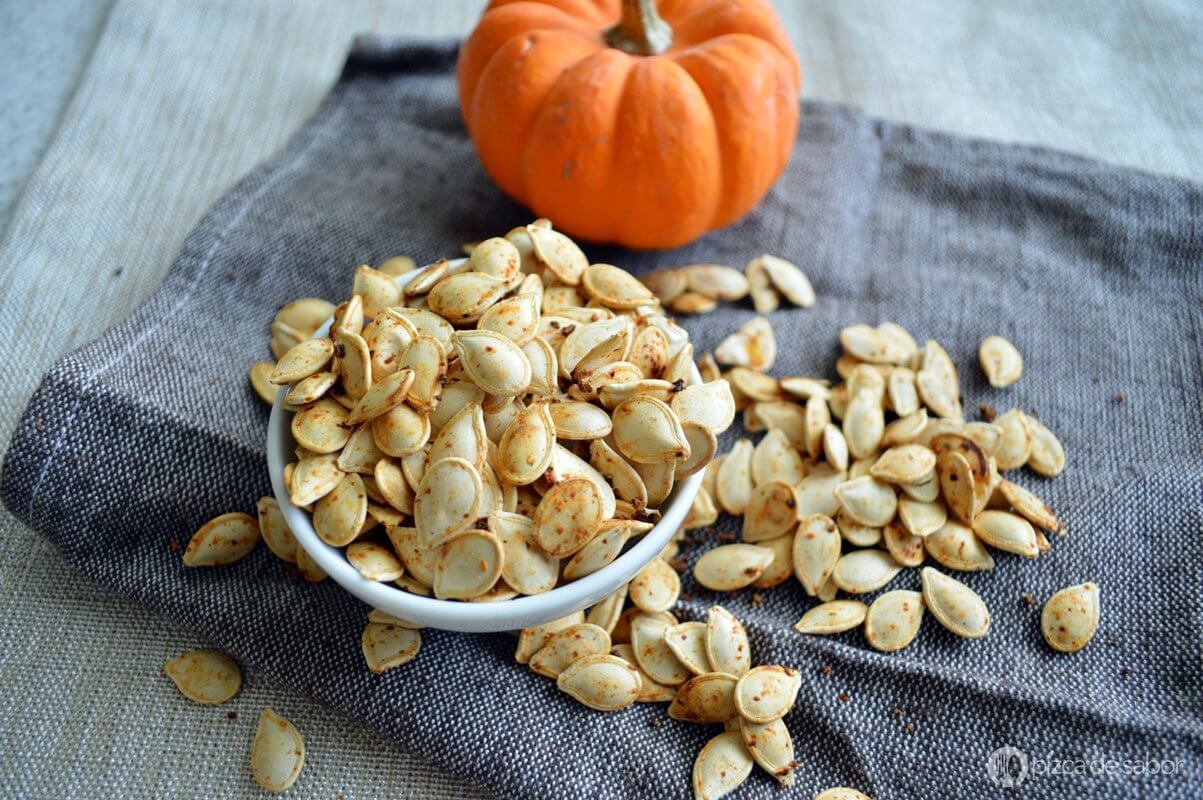
They are a perfect source of vegetable protein. Just 100 grams of these seeds contain around 54% of your recommended daily amount of protein.
They also have large quantities of:
- B vitamins
- Tryptophan
- Omega-3 fatty acids
- Zinc
Pumpkin seeds are known for their anti-inflammatory abilities, both for the prostate and the bladder.
They also help build and repair muscle tissues and, because they contain tryptophan, help stimulate your mood naturally.
You can incorporate them in soups, salads, yogurts, and cheeses.
Use and Storage
As you know, seeds are very beneficial for your health, but you must know the correct ways to preserve them to make the most out of them.
- Store them in a closed glass jar and out of direct light.
- To eat them directly, it’s important to soak or grind them, because if you don’t, they will pass through your digestive system intact and you won’t obtain their benefits.
- You can also put them directly on bread with a little bit of oil.
There are many ways that you can incorporate seeds into your recipes or eat them directly. It doesn’t matter which way you choose: what’s important is including them in your daily diet.
All cited sources were thoroughly reviewed by our team to ensure their quality, reliability, currency, and validity. The bibliography of this article was considered reliable and of academic or scientific accuracy.
- Millar CL., Duclos Q., Blesso CN., Effects of dietary flavonoids on reverse cholesterol transport, HDL metabolism and HDL function. Adv Nutr, 2017. 8 (2): 226-239.
- Hijova E., Bertkova I., Stofilova J., Dietary fibre as prebiotics in nutrition. Cent Eur J Public Healht, 2019. 27 (3): 251-255.
- McGlory C., Devries MC., Phillips SM., Skeletal muscle and resistance exercise training; the role of protein synthesis in recovery and remodeling. J Appl Physiol, 2017. 122 (3): 541-548.
This text is provided for informational purposes only and does not replace consultation with a professional. If in doubt, consult your specialist.








